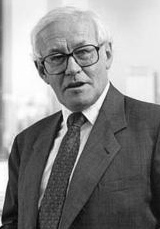 This week’s (July 25-26, 2015) National Conference of the Labor Party brought back the deja vu feeling in me and the memory of the efforts of Frank Costigan QC to achieve reform in the ALP – more influence to genuine members – less power to self interested power groups. Frank was a quiet and decent person, who did a power of good in his lifetime. He had a relaxed style about him, and a sense of humour.
This week’s (July 25-26, 2015) National Conference of the Labor Party brought back the deja vu feeling in me and the memory of the efforts of Frank Costigan QC to achieve reform in the ALP – more influence to genuine members – less power to self interested power groups. Frank was a quiet and decent person, who did a power of good in his lifetime. He had a relaxed style about him, and a sense of humour.
Many decent people, I have observed, do not usually last in politics. They usually leave the political party in disgust at the ruthlessly immoral behaviour of those strange beings without ideals who have a single-minded ambition to achieve power (and money?) at any cost. Such decent people usually then move into an area wherein they can do good without the ceaseless skulduggery.
Then there are the others (stronger decent people?) who know that they must stay in the political cesspool because that is the infrastructure within which the most good can be done for the most people. Such was Frank Costigan QC.
I was a friend of Frank’s. I admired him greatly. I want to put on record an achievement — shared with Frank — one I unashamedly take pride in.
The scene was in 1970 at the Festival Hall near the current Docklands in Melbourne. The big question was “Intervention” and the reform of the Victorian Labor Party. There were human blockages in Victoria which were a threat to a possible big victory by the ALP, then led by Gough Whitlam. The key and burning question at this meeting was whether the ordinary member could participate in the decisions of the party.
I was the first to speak at the conference. I moved a resolution seconded by Frank Costigan that 50% of voting power in the party go to the unions (who had the lot at that stage). and 50% voting power go to the members. We argued quite cogently that if the branch members were not to be represented in the party we may as well go home.
Almost every other item on the proposed agenda depended on voting this in on principle. I remember looking up at the confronting faces of Tom Burns, Bob Hawke, Jim Cairns, George Crawford and other heavies and having them look down — and they were up on high on the stage like Judges in the High Court — gazing on us and strongly saying that they wanted to follow the agenda as planned. I couldn’t believe their stupidity — as I saw it.
Our motion was not accepted, it being contrary to the agenda or something like that. Frank Costigan and I had a meeting with a few other supporters (Max and Norma Edgar, Gerry Cunningham, John Champion?) and decided to keep fighting. We wrote a pamphlet and had it printed that night. It was headlined “50-50”. The next day we gave out these pamphlets advocating the 50-50 power sharing plan to all the delegates. We built up momentum.
In the meantime, the agenda of the heavies got nowhere. Towards the end of the conference Bob Hogg moved a resolution to grant 60% representation to the unions, and 40% to the members. Hogg did not even acknowledge Costigan and myself, and spoke as if he had suddenly found the solution himself, which pissed me off greatly at the time.
But Hogg’s resolution got through and the whole agenda then sailed through — and enough democracy came through to the Victorian branch to keep a fair few of the members. Enough “Reform” had been achieved. Gough Whitlam went on to win the election.
Years later I met Frank at Sydney airport when our mutual plane was delayed. We went off and had a few beers together an jovially reminisced about our party changing stand for 50-50. Frank Costigan, who later became famous as a Royal Commissioner into the Painters and Dockers Union, died with a track record of many achievements to his credit, but this unacknowledged one was one of his most influential, and a key element in restoring the ALP to government in 1972.
—
POSTSCRIPT: The Costigan’s are remarkable family. By coincidence, I have had a long-standing friendship with Frank’s twin brother Michael Costigan who has done some wonderful things in his life. I also ended up living in the same apartment block as another brother, Peter Costigan, a lovely and hospitable man, with whom I shared many a red. Peter, for a while, was Lord Mayor of Melbourne. We actually planned a Ceremony/Rite-of-Passage for the young people (teenagers) of Melbourne. He died suddenly.
Dally Messenger
Life Member of the Australian Labor Party.

